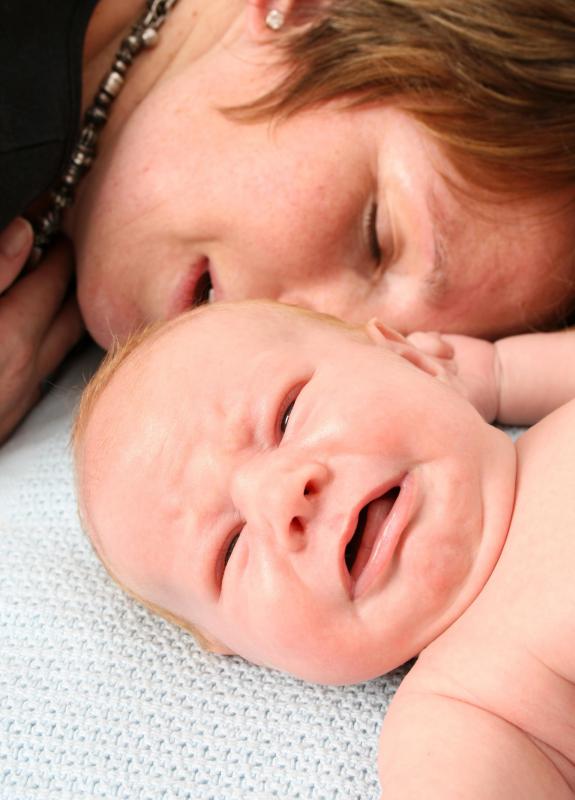At TheHealthBoard, we're committed to delivering accurate, trustworthy information. Our expert-authored content is rigorously fact-checked and sourced from credible authorities. Discover how we uphold the highest standards in providing you with reliable knowledge.
What is Puerperal Psychosis?
Puerperal psychosis, also known as postpartum psychosis, is a psychiatric condition affecting women who have recently given birth. Puerperal psychosis usually strikes in the first few days following birth, but symptoms can begin anytime in the first four weeks after birth. Typically, the condition occurs in phases, beginning with symptoms of insomnia, excitement, and agitation. Later, patients usually progress to a manic phase, followed by a depressed phase. While postpartum psychosis is treatable, it is generally considered to constitute a medical emergency, and women who develop it are more likely to experience it again following subsequent births.
The average woman's chances of developing postpartum psychosis are usually much lower than her chances of developing postpartum depression, a far more common psychiatric disorder associated with childbirth. Postpartum psychosis affects about one in every 500 women who have given birth within the past four weeks. Experts believe that postpartum psychosis may be linked to heredity, since women are more likely to develop it if their mothers or other close female relatives have suffered it.

Women who have suffered puerperal psychosis in the past may have as much as a 50% chance of developing it again in the future. Women who suffer from bipolar disorder or schizoaffetive disorder may be more likely to suffer from postpartum psychosis. These cases are often attributed to a relapse triggered by the stresses and hormonal changes of pregnancy and childbirth.

Insomnia is often the first symptom of postpartum psychosis. While it's considered normal for women to suffer insomnia on the first night after childbirth, insomnia generally resolves by the second night, due to the physical stress of labor and the demands of meeting the needs of a newborn infant. Insomnia symptoms are typically followed by increased energy levels, or feelings of restlessness and irritability. Women may or may not become preoccupied with infant care, but even if a woman is very concerned with caring for her new baby, she typically lacks the mental acuity to do so properly. Feelings of paranoia, even directed at family members, or fears that something is wrong with the infant, are often common.

Between four and 14 days after birth, the mother experiencing puerperal psychosis generally experiences a manic phase, during which hallucination, delusions and mental confusion may occur. Women in this phase often have no insight into their own mental condition, and may become uncharacteristically aggressive or angered when loved ones or professionals attempt to intercede. Following the manic phase, most women will experience a phase of depression. Women in this phase may become so severely depressed that they consider harming themselves or their infants.

Treating puerperal psychosis usually involves a combination of psychiatric drugs and supportive therapy. Many health care professionals prefer to hospitalize women with their babies, so that staff can support mother and child bonding and help the new mother learn to care for her infant after release. Treatment may need to continue for several months, but the prognosis is often good, especially in women with no prior personal history of mental illness.
AS FEATURED ON:
AS FEATURED ON:















Discuss this Article
Post your comments